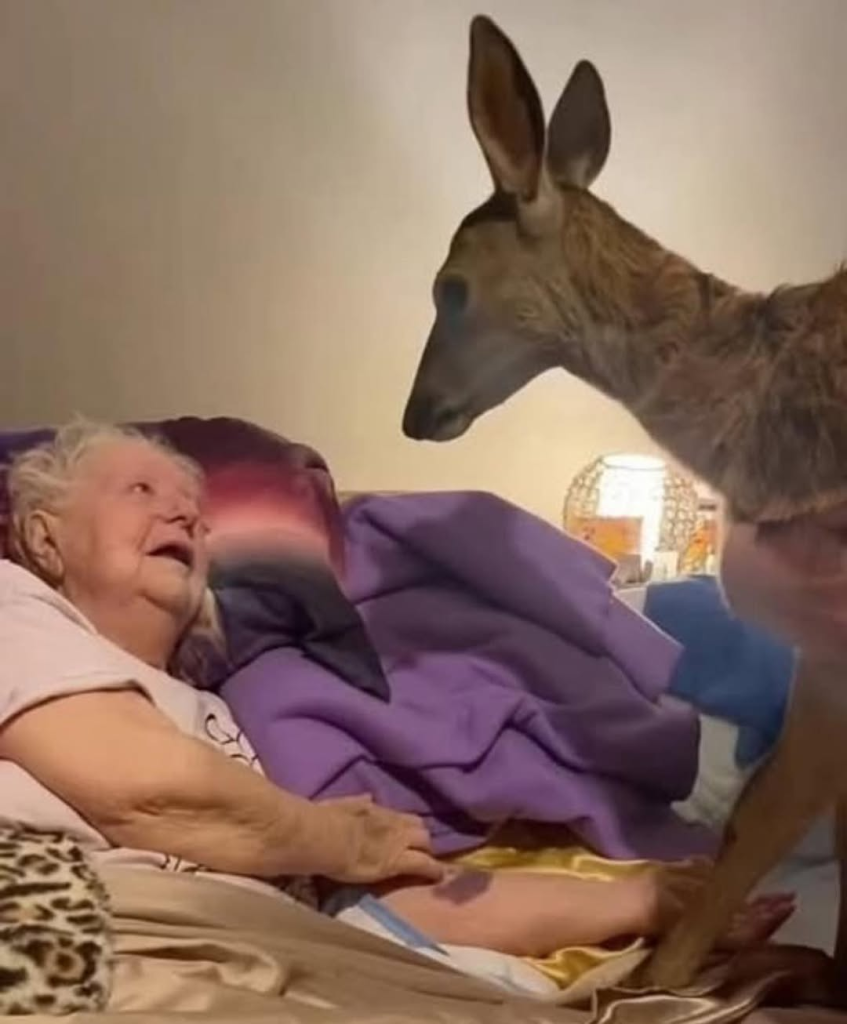Lisa McDonald and her sister had been caring for their mother in palliative care, witnessing daily how the illness was stealing bits of her strength, her energy, her light. They watched as the vibrant parts of her slipped away — laughter fading, conversations growing shorter, smiles more fragile. But amidst all the difficult moments, they also held tightly to memories: of what made her happiest, what inspired her joy, what once made her eyes sparkle.
Her mother had always loved Bambi. The iconic deer had been a fixture in her life — on T-shirts, in statues, holding court among her favorite keepsakes. The soft innocence, the gentle nature of the deer — it spoke to her heart in a way very little else could. As the days of illness mounted, Lisa kept thinking: could they do something to bring back a flicker of that joy? Could they bring Bambi alive, at least for a moment?
That thought shaped into a plan. Lisa and her sister began reaching out, exploring whether it was possible: locating someone who had a fawn, someone willing to bring it in. They found Chris and Simone, who ran a mobile petting zoo. When Lisa heard they had a fawn — a real baby deer — she leapt at the opportunity. The sisters arranged for Bambi to come. Despite the distance — two and a half hours’ drive — they didn’t hesitate.

On an afternoon when the sun was soft, Chris, Simone, and the fawn arrived. Lisa’s mother hadn’t expected this; the idea of a live deer in her room was almost surreal. Then the door opened, and Bambi wandered in, delicate and shy. When the fawn stepped across the threshold, something shifted. Lisa’s mother’s eyes widened. She whispered, “Oh my goodness… is that really Bambi?” Her voice trembled — a mixture of disbelief, delight, overwhelming emotion.
Bambi approached gently, nuzzled her hand. The deer’s warmth — soft fur brushing against the skin — brought her a physical sensation she hadn’t felt for a long time. She closed her eyes, took a deep breath, and for a few moments, smiled. It was not a big smile, but it was full — deeply alive. The hospital equipment, the medicine, the sorrow, the waiting — all of that receded just enough that there was — pure wonder, pure connection, pure love.
In those precious hours, there was no ticking clock. There was no diagnosis. There was simply the here and now: the rustle of Bambi’s breath, the gentle nuzzle, the sparkle returning to her eyes. Lisa watched her mother, saw her truly see. And when the time came for Bambi to leave, even though sadness waited beyond the doorway, there was gratitude: her mother pressed her hands to her heart and whispered, “Thank you, Bambi.”
That moment — so simple, so fleeting — was more powerful than any medicine. It was a reminder of what matters: presence, dignity, love. It was a gift not just for her mother, but for Lisa, for her sister — a memory to carry forward in the hard days ahead. Because even when illness takes so much, it can’t take the spark that small miracles create, the way they remind us we are alive.